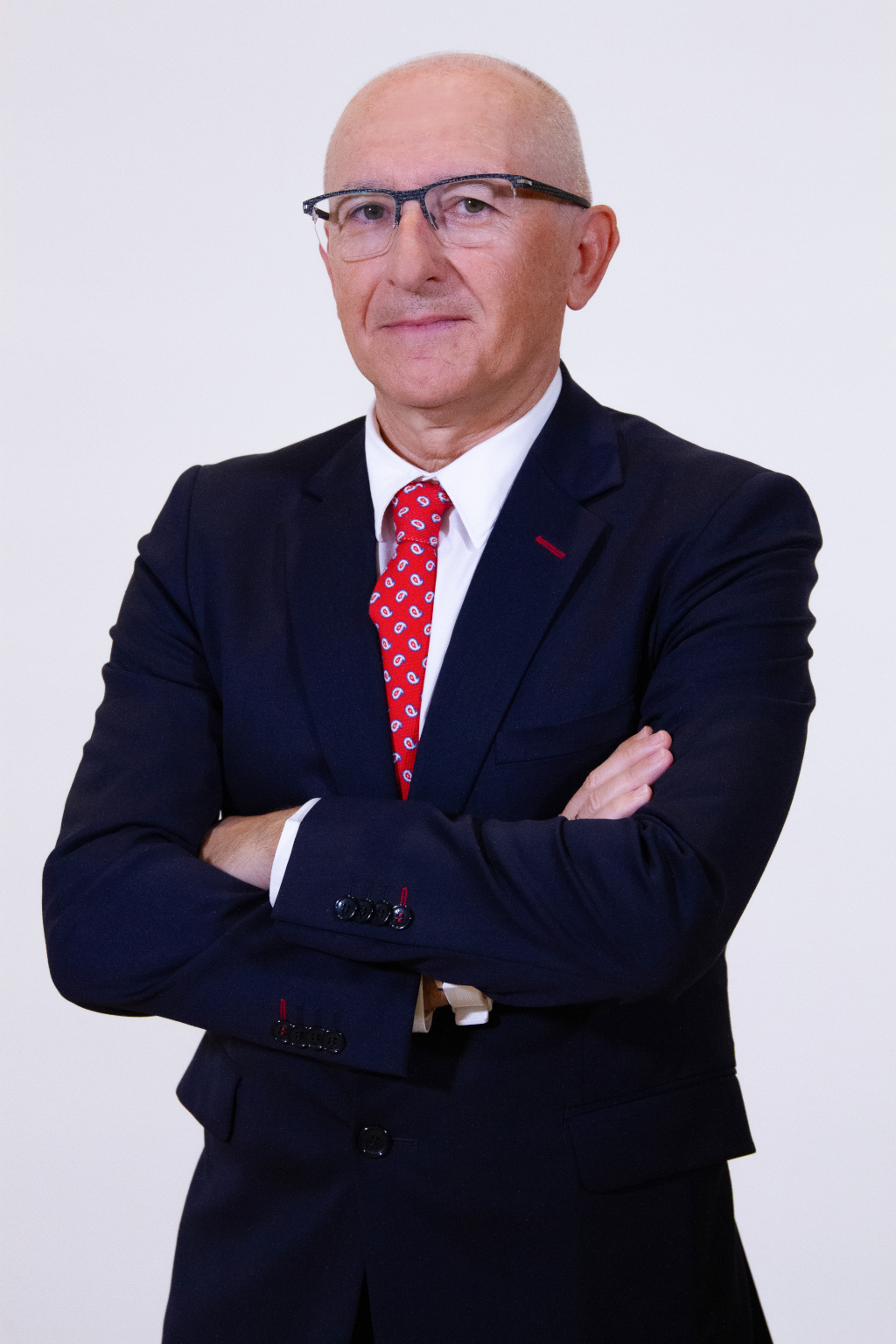
Born on 30 May 1969 in Jódar (Jaén), Enrique Herrera Viedma obtained his Bachelor's Degree in Computer Science from the UGR's School of Computer and Telecommunication Engineering (ETSIIT) in 1993 and his Doctoral Degree in Computer Science from the UGR in 1996. He has been a Professor (Catedrático) of Computer Science and Artificial Intelligence at the ETSIIT's Department of Computer Science and Artificial Intelligence since 2007.
Since 1994, Prof Herrera Viedma has been teaching undergraduate and master's degrees at both the ETSIIT and the UGR's Faculty of Communication and Documentation, and has held various academic positions including Vice-Dean of Technologies and Research. He is a leading member of the Andalusian Inter-university Institute in Data Science and Computational Intelligence (DaSCI) and is Director of the SECABA Lab multidisciplinary laboratory. Since 2015 he has held the position of Vice-Rector for Research and Knowledge Transfer at the UGR, promoting important research excellence programmes including the Excellence Actions Programme: Scientific Units of Excellence. He has also coordinated significant national projects related to sustainability and artificial intelligence such as the Implementation of the IFMIF-Dones International Project in Granada, the LifeWatch project "Thematic Center on Mountain Ecosystems & Remote Sensing, Deep Learning-AI e-Services, University of Granada-Sierra Nevada", the creation of the Centre of Excellence for Artificial Intelligence Research (AI Lab Granada) together with Indra and Google Cloud, the Granada AI Research & Innovation Foundation, and the AIR-Andalusia Digital Innovation Hub for Artificial Intelligence and Applied Robotics.
During his professional career he has supervised 25 doctoral theses, published more than 350 articles in international JCR journals, coordinated the editing of 24 special issues in international JCR journals, and directed more than 30 national and European research projects in the field of computer science and artificial intelligence and their applications.
His high-quality scientific output and international impact in the area of computer science and artificial intelligence are particularly noteworthy. His papers have been cited more than 30,000 times in the Web of Science database (Clarivate Analytics) and more than 50,000 times in the Google Scholar database, with a Web of Science h-index of 90 and a Google Scholar h-index of 111. In the Essential Science Indicators database (Clarivate Analytics) he has more than 49 articles in the Top 1% of the most cited papers in the areas of Computer Science and Engineering. Since 2014 he has been included in the Clarivate Analytics list of Highly Cited Researchers (Top 1%), and as one of the most influential scientific authors in the world in the categories of Computer Science and Engineering. In the Stanford ranking, which identifies the most influential researchers in all scientific areas and brings together the Top 2% of the most prominent researchers in the area of Artificial Intelligence & Image Processing, Prof Herrera Viedma is one of the distinguished researchers in the area of AI in its three editions (2020, 2021 and 2022). In 2013 he analysed the impact of ICT and AI in the article 'Libraries' Social Role in the Information Age' for the prestigious journal Science.
With regard to his international scientific leadership in the field of AI, he is associate editor of 14 international JCR Computer Science and AI journals and a member of the editorial boards of 7 international JCR Computer Science and AI journals. In addition, he has held the post of Vice President for Publications of the prestigious IEEE Systems, Man, and Cybernetics Society and, since 2021, has been its Vice President for Cybernetics, where he is responsible for coordinating the work of more than 25 scientific committees in different areas of computer science and AI.
He holds a UGR Outstanding Doctorate Award (1996), a UGR Award for Research Excellence (2003, 2010 and 2021), and a UGR Social Council Award for Young Researchers (2005), in addition to being an IEEE and IFSA Fellow. He is a member of the European Academy of Sciences "Academia Europaea"; the Science Council of the Elcano Royal Institute for International and Strategic Studies as an expert in AI; the Advisory Committee for Public Information and Participation of the Spanish Nuclear Safety Council; the Committee of Experts in Digitalisation and Innovation for the elaboration of the Smart Specialisation Strategy for the Sustainability of Andalusia (S4Andalucia); and the AI Committee of Experts of the Digital Agency of the Regional Government of Andalusia. In 2022 he was awarded the title of Doctor Honoris Causa by the University of Oradea and was also named an honorary citizen of his hometown of Jódar.
Address: Gran Vía de Colón, nº 48 - 2ª planta 18071 Granada (España)
Telephone number: +34 958 244135
Email: @email